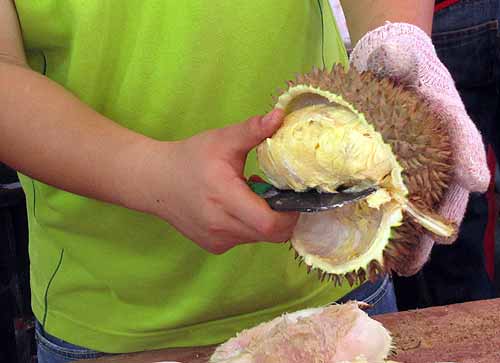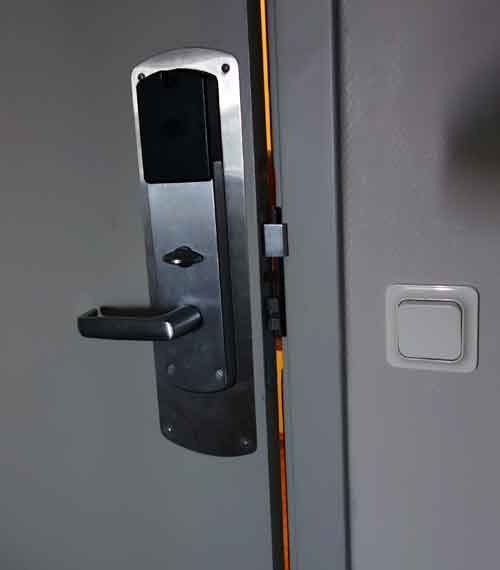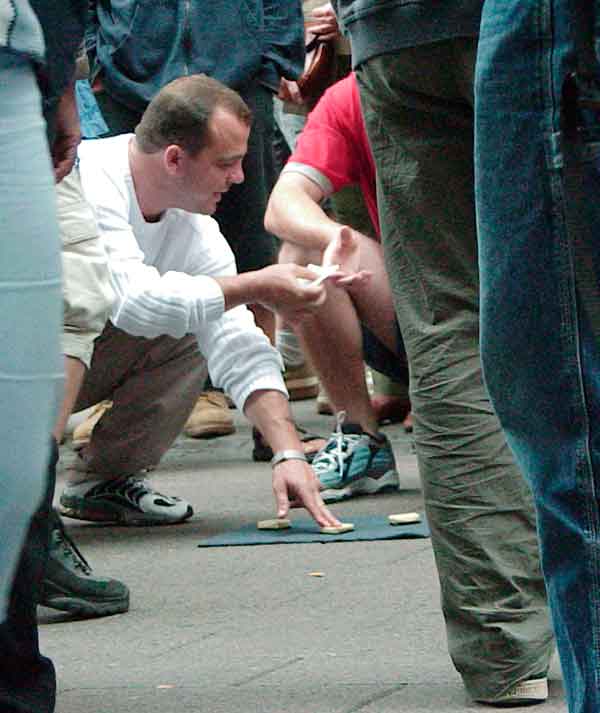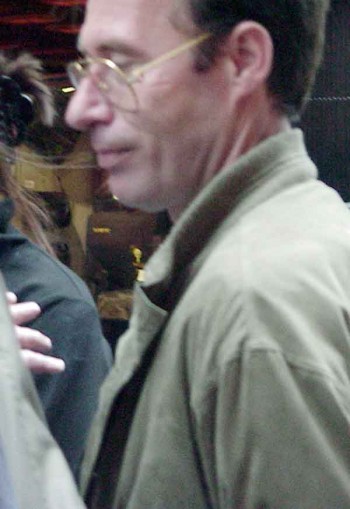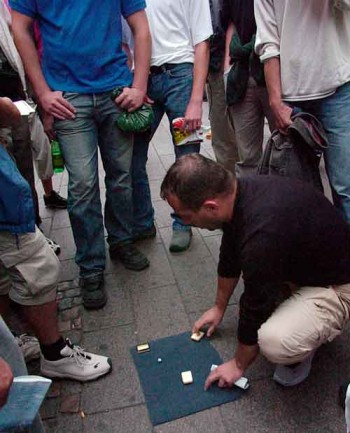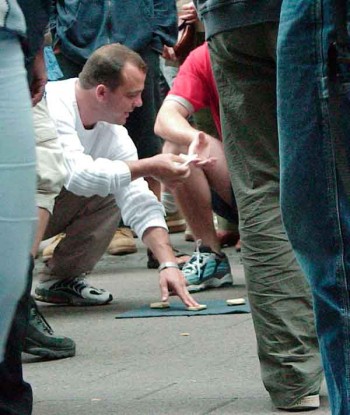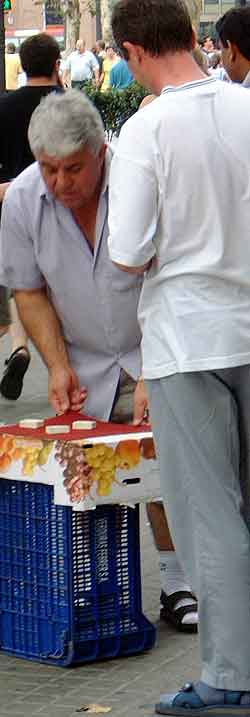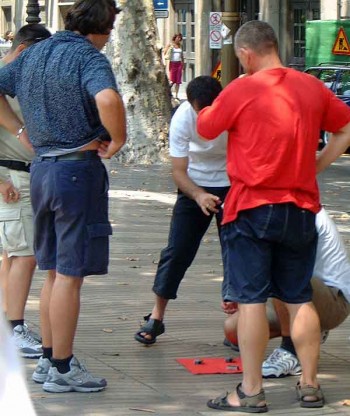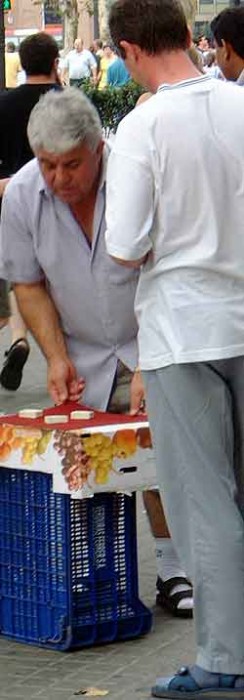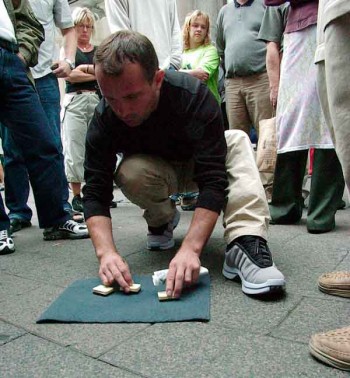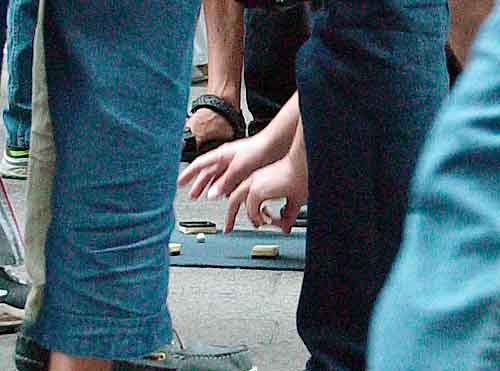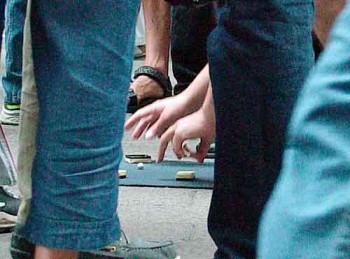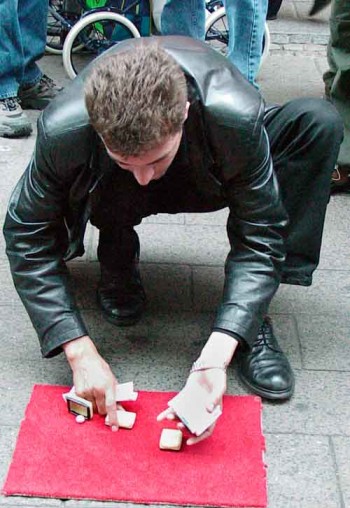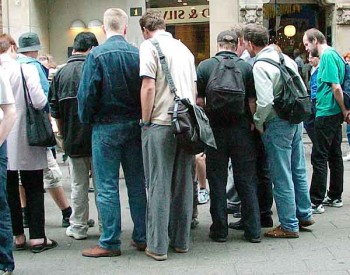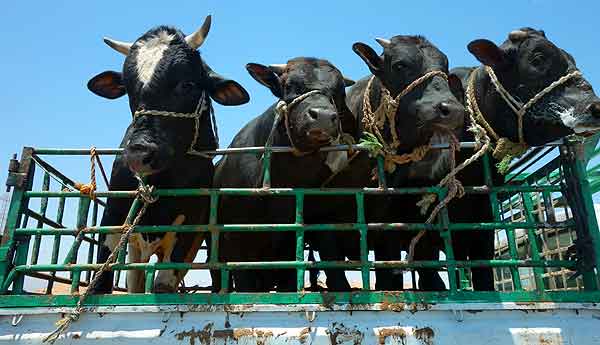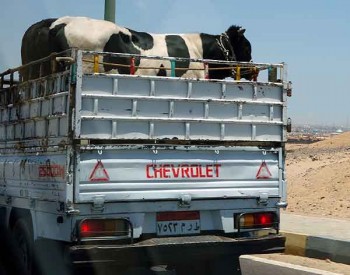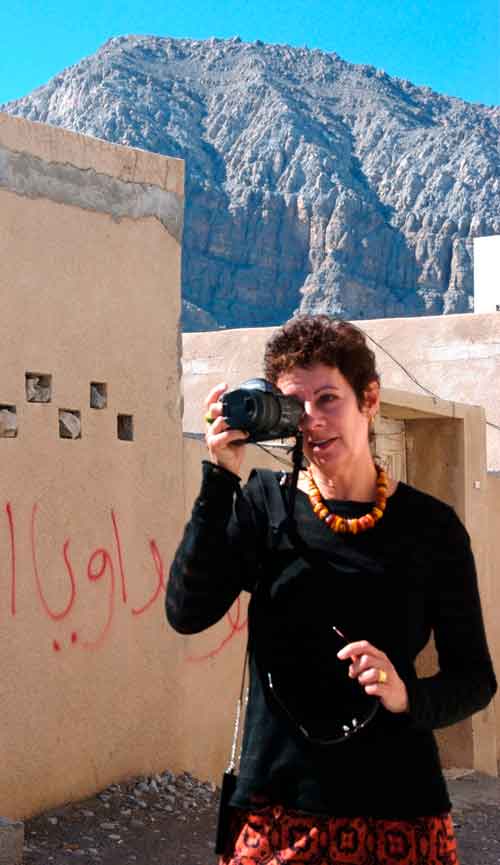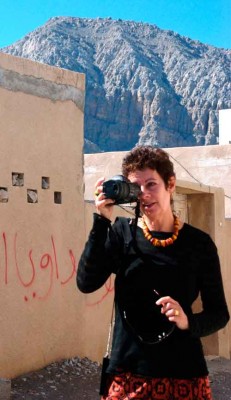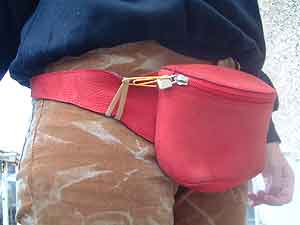Durian.
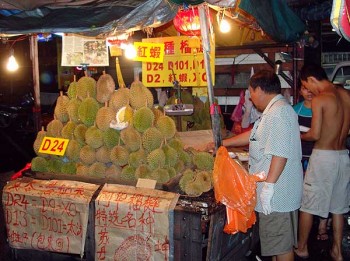
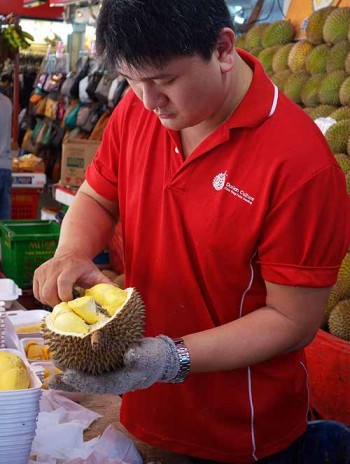
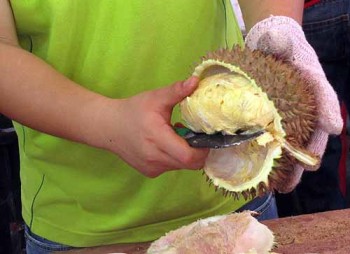
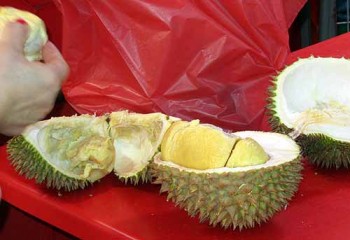
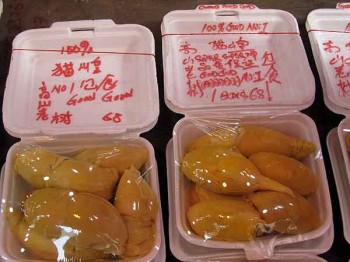
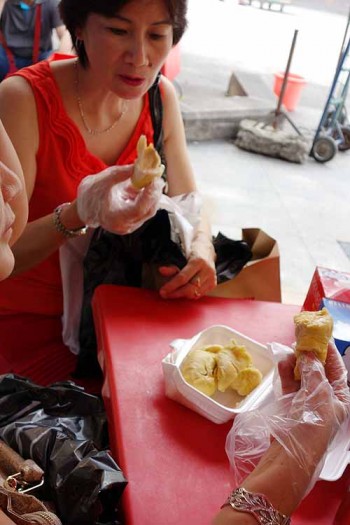

You love it. You hate it. Or you’ve never had it. This powerfully-fragrant fruit from Southeast Asia is considered so foul-smelling by some people, they say they hate it even though they can’t bring themselves to taste it.
All I can say is: poor them. I’m obviously in the love-it camp. I can smell it from blocks away and am magnetically drawn to the stand like a bee to honey or a fly to… well, I’ll leave the similes to you.
Durian flesh is intensely sweet but at the same time, delicately flavored. Its creamy-custardy consistency can be firm to soft, and has a silky texture. Surely one of nature’s strangest inventions, its surprising, delicious interior is protected by multiple barriers. If its odor doesn’t put you off, its dangerous thorns might. And how do you crack the thing, anyway. All messages are: stay away!
Unless the fragrance entices…
The football-shaped durian has a thick spiked shell. If it weren’t so heavy, it would be a formidable weapon. Durian professionals wear an armored glove on one hand, and wield an evil-looking knife or cleaver in the other. The soft interior segments are gently prized out and arranged in a styrofoam box, where they look not unlike an undercooked omelet, or piece of raw chicken fat. Ready-to-eat durian will not win a beauty contest no matter who are the other contestants in the fruit-world. It beckons with its fragrance. By necessity, it must. A feast for the eyes, it isn’t.
I don’t know the qualifications the durian man uses to grade his fruit, especially without tasting it. Maybe they’re meant to remain a mystery. But wherever durian is sold, a range of qualities is on display. The priciest are often noted with a number of exclamation points: “best quality!!!” I’ve seen styrofoam boxes of durian ranging from about $3 to over $60. Locals scrutinize the offerings with serious concentration and buy the best they can afford.
Other durian stands sell the whole, uncut fruit. How does the buyer choose? Locals I have dined on durian with answer ambiguously.
Ladies-who-lunch and professional women visit the durian man in small groups. After selecting, they take their box to a plastic table, pull disposable gloves over their nails and jewelry, and dig in with their hands. I like the dichotomy: these elegant women visit their local supplier to quell a craving, get a quick and messy fix, then peel off the gloves, pop a breath mint, and slip back into society. The aroma will stick to them like illicit cigarette smoke.
Before I knew better, I bought durian and tried to take it home on a bus. This was in Singapore. It only took a few minutes before the bus stopped and I was ejected with my plastic bag. A taxi grudgingly drove me, but only with all its windows open despite the high temperature and humidity.
I ate too much durian in Bangkok one time and got what I later learned is called “hot tummy.” I felt light-headed, too, and had to take a tuk-tuk back to the hotel. Bangkok traffic is legendary—not even a little tuk-tuk can move quickly through it. The carbon monoxide fumes made me feel even sicker, but by the time I got back to the hotel, my hot tummy had cooled.
It seems you can now get durian in New York City, though I wonder how fresh they are. What is the shelf-life of an unfrozen durian? They’ve got to be frozen. If the NYC supply has been frozen, I’d stay away. They’d certainly not be suitable for a first introduction.
In Southeast Asia, when fresh ones are not available, I’m very happy with a durian shake. Durian cakes and custards are okay. Nothing beats the iced malaysian dessert durian chendol. I dream about it.

